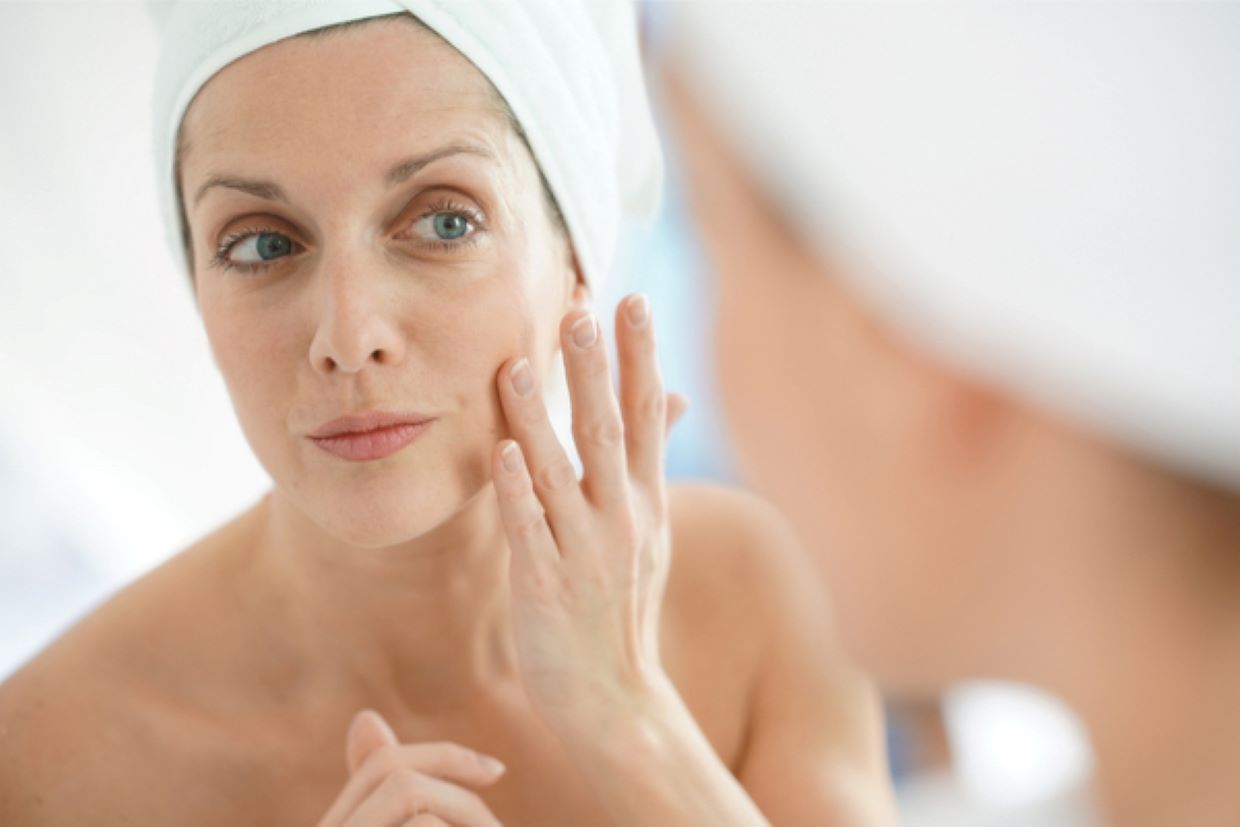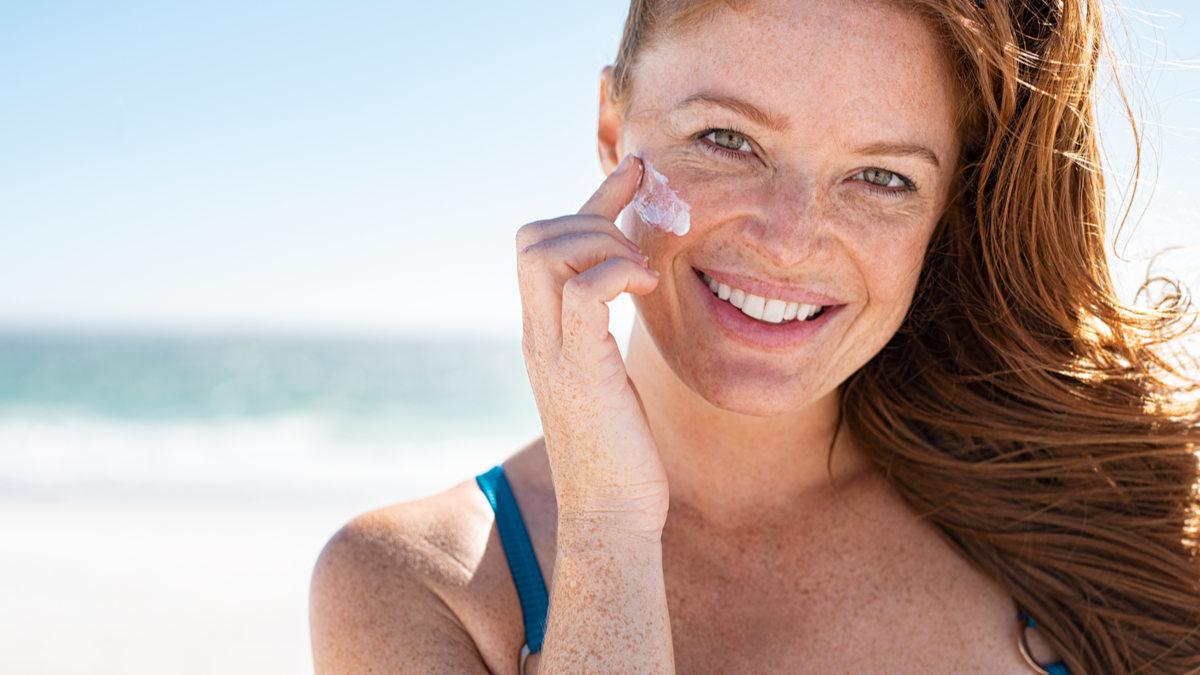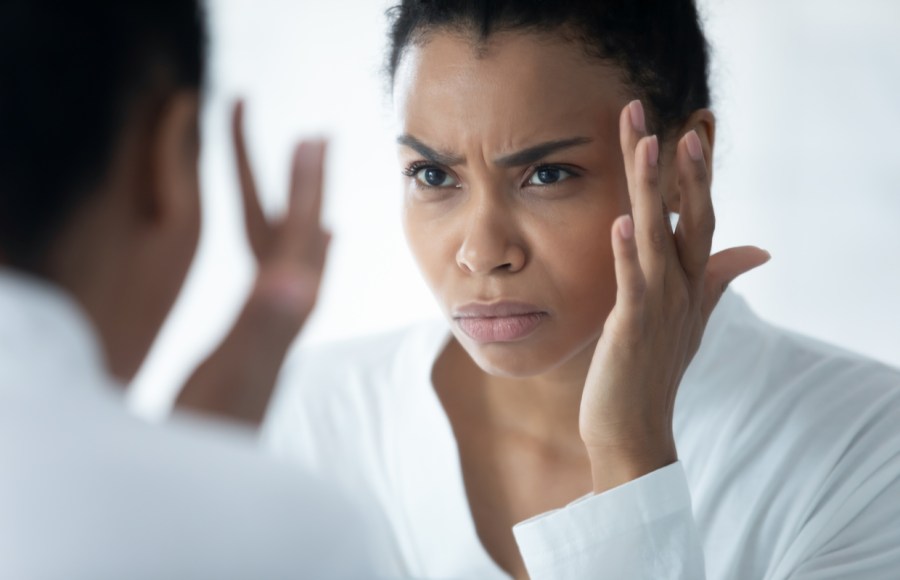In the ongoing quest for younger-looking skin, we explore why retinol is the holy grail of skincare – and the dos and don’ts behind using it…
By Rachel Tompkins
Right now, retinol is regarded by most skincare doctors and beauty insiders as the holy grail of good skin. This is largely because many people believe it’s the only active ingredient that can actually change the quality of skin.
What does retinol do to your skin?
It’s no surprise that it’s recommended by pretty much every expert in the industry, from dermatologists to beauticians alike. ‘Retinol is a type of retinoid derived from vitamin A. It’s highly effective at reducing fine lines and wrinkles by increasing the production of collagen,’ explains Dr Rekha Tailor, medical director of Health & Aesthetics.
‘Retinol works by encouraging basal cells in the lowest layer of the skin to divide and as a result we see new epidermal cells working their way up to the skin’s surface. It helps prevent collagen breaking down and thickens the deeper layer of skin to help prevent wrinkles.’
Can retinol damage your skin?
Dr Rekha points out that retinol may not be for everyone. It can, in fact, exacerbate conditions such as psoriasis, eczema or rosacea if not used under a clear treatment plan provided by a cosmetic doctor or dermatologist.
With this in mind, it’s worth knowing the simple dos and don’ts about using retinol, in order to avoid them and ensure you use it in the best possible way for you and your skin…
The dos and don’ts of using retinol

DON’T guess
‘While there are a plethora of products containing retinol available on the market, I would always advise consulting a specialist. This will help to ensure you’re using the best retinol for your skin and doing so in a safe way,’ explains Dr Rekha.
‘Retinol products on prescription, such as ZO Skin Health (prices on request), are more powerful and work faster. However, prescription retinol also increases the risk of skin irritation. This needs to be monitored by a doctor. For this reason, it’s important that you never try to guess what retinol product is right for you. Instead, seek the advice of a qualified expert.
Used in conjunction with other products, Dr Rekha always suggests Zo Skin Health Retinol Skin Brightener in three strengths (0.25, 0.5 and 1 per cent), Zo Skin Health Wrinkle + Texture Repair and Zo Skin Health Radical Night Repair for her patients.
‘It’s a unique, potent blend of retinol, vitamin E, antioxidants and melanin inhibitors. This is a comprehensive multi-action formulation to minimise redness and maintain restored skin,’ she says.










‘Exercise caution and always remember that retinol can cause skin sensitivity at any age,’ explains Lizzie Shaw, brand manager at PCA Skin.
‘This is because it essentially retrains your skin cells to turnover at a faster rate than usual. During the first few weeks of use, the skin has to get used to it. During this time, your skin will often feel dry, and can sometimes appear red and peeling. So, it’s vital you never skip wearing a high factor SPF when using retinol. Even if it’s cloudy and you’re staying indoors!’
Lizzie recommends PCA Skin Daily Defence Broad Spectrum SPF 50+ (£40). ‘It’s ideal for defending against both types of UV rays. It’s recommended for normal and combination skin,’ she says.
DON’T wait until you’ve got wrinkles
Dr Rekha suggests starting to use retinol while you’re in your 30s (some experts advise not using retinol if you’re trying to get pregnant). However, if you’re in your 40s, 50s or even 60s, it’s not too late to notice the benefits.
‘It’s particularly good if you suffer from pigmentation or breakouts. For most people, retinol can be incorporated into your evening routine,’ she says.
‘Make sure your face is washed with a gentle cleanser and wait a few minutes for your skin to dry. Then, take a pea-sized amount of retinol. Starting at your chin, apply it with your fingertips in upward and outward motions.’
Dr Rekha recommends avoiding using retinol in your morning skincare regimen and to always use SPF when using it. This is because, as mentioned previously, retinol makes skin more sensitive to sun damage.
DO use retinol around your eyes
‘There’s a common misconception that retinol cannot be applied around the delicate skin that surrounds the eyes,’ says Elizabeth Hawkes, consultant oculoplastic surgeon at the Cadogan Clinic in Chelsea.
‘However, this is absolutely not the case. It’s important not to miss this delicate and visible area. In fact, the skin around the eyes is commonly one of the first places to be affected by wrinkles and crow’s feet. Retinol is ideal to help reduce this.’
Used regularly, Elizabeth says that retinol will firm and smooth the skin under and around the eyes. ‘Retinol creams such as the one from Skin Ceuticals should be applied at night under and around the eyes. Exercise caution to ensure you don’t go too close to the lash line,’ she says.
‘It’s important to note that while retinol is safe to be used around the eyes, it may not be always tolerated. Therefore, it’s best to start with a low dose. Start weekly and build up gradually to ensure tolerance.’
DON’T mix retinol with vitmain C
Remember to avoid acids when using retinol! Dr Rekha advises against mixing it with vitamin C, as well as benzoyl peroxide and AHA/BHA acids.
‘These acids exfoliate and dry skin and cause further irritation. On the other hand, benzoyl peroxide cancels out retinol so there’s no point using them together,’ she says.
Click here to discover when and why you should toss out your old beauty products!